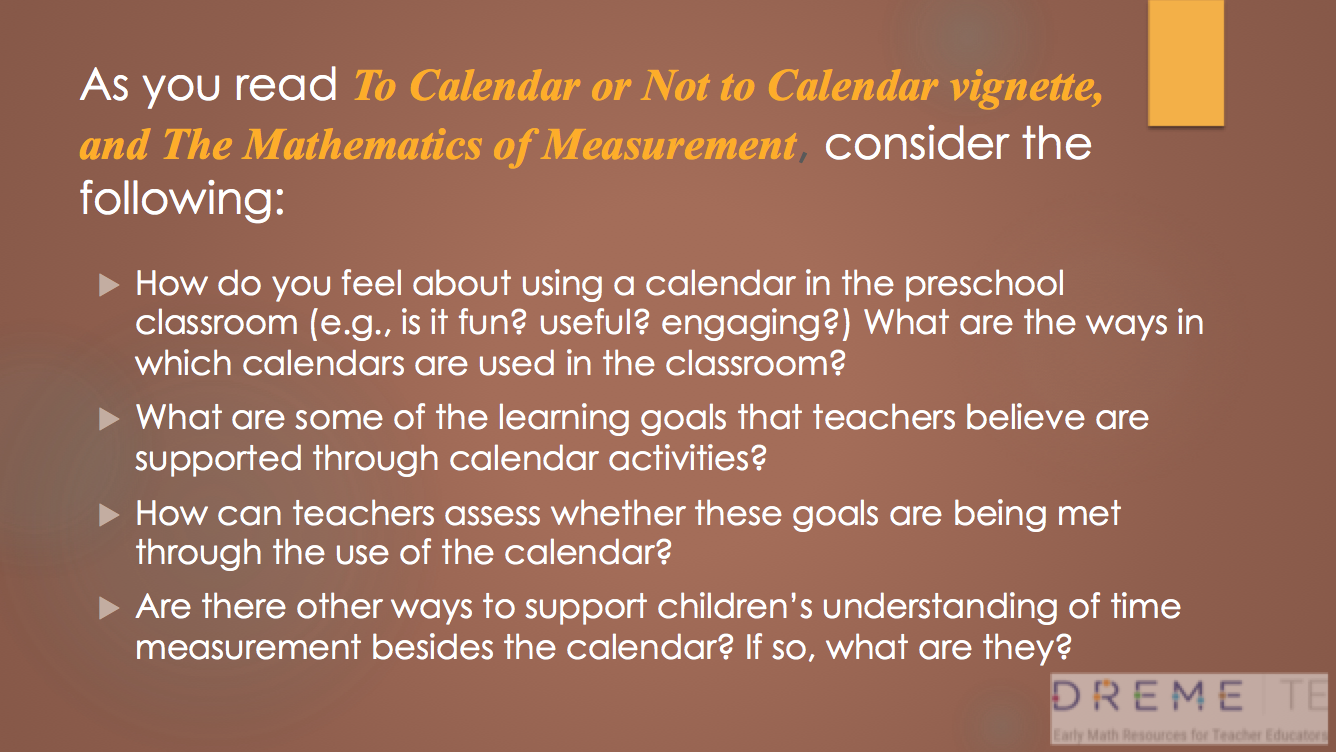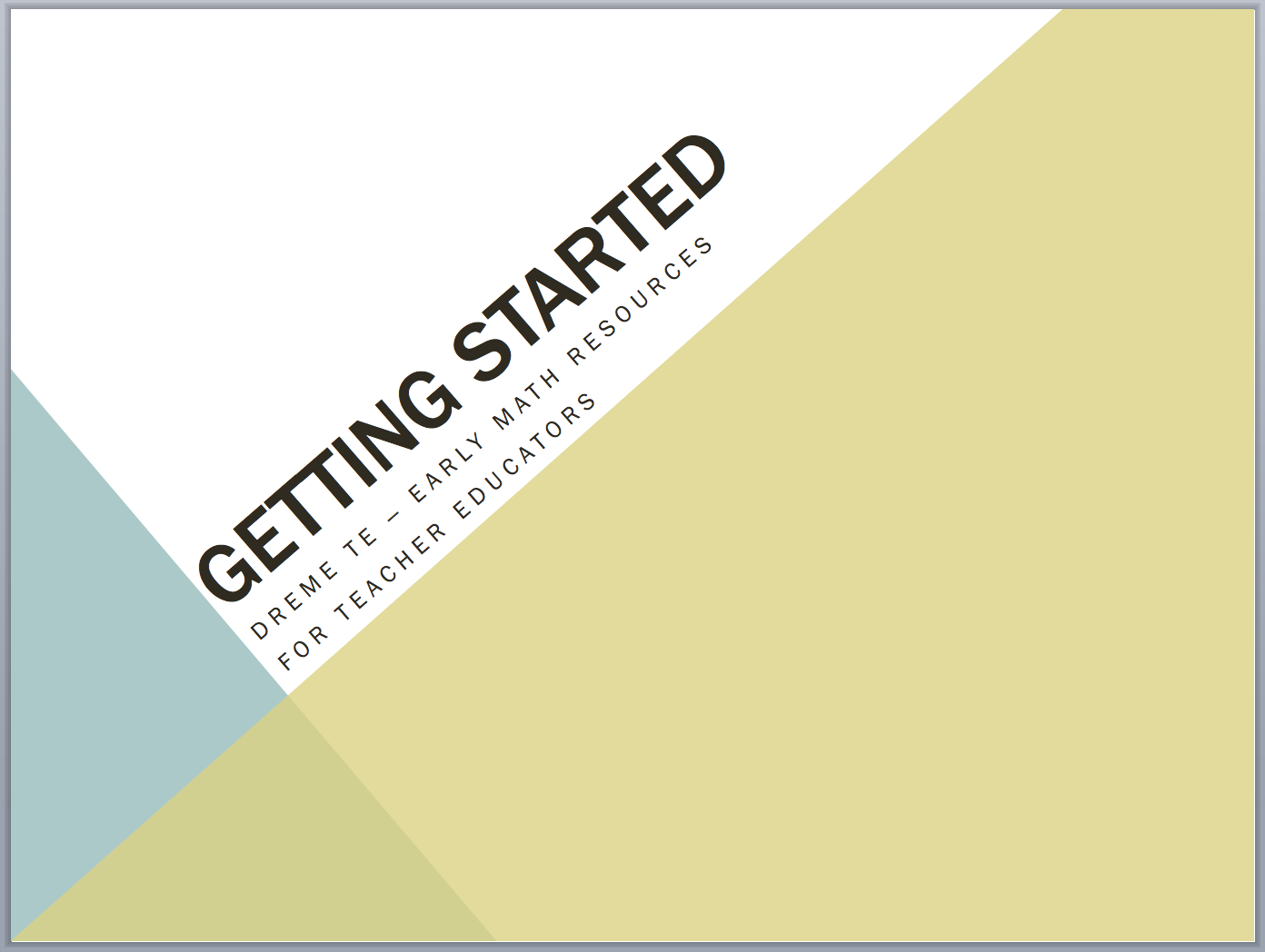A story of how Teachers Angela and Patrick learned from the children about calendar activities.
Teachers Angela and Patrick had spent part of the summer revamping the curriculum for their mixed-aged preschool classroom. They had always taken a project approach to teaching, and this year was no different. They had asked the three-year-olds at the end of last year for ideas, since they would be the four-year-olds this year. The children had lots of exciting ideas, too many in fact, to cover in one year.
During their planning, in addition to integrating those topics in which the children were interested, Angela and Patrick wanted to choose the repeating daily activities with care. They wanted to make sure that the environment and the activities provided truly good opportunities for development and learning. They dropped some of the activities that they felt hadn’t been very useful in the past, like getting everyone in a straight line and quiet before they could go out to play (they started transitioning in groups instead).
As the year began, Angela and Patrick continued to keep an eye out for any activity that didn’t seem to promote learning. They noticed that while the children did participate in calendar time, they did so in a bored, rote fashion. So Angela and Patrick decided to take turns holding circle time for a few days, and whoever wasn’t doing the circle time would take notes about the calendar activity. At the end of the week, they compared notes.
Angela: You know, I noticed that they don’t even look at the calendar when we say the days of the week and the number of days. Most of them are playing with their shoes or bumping their neighbors.
Patrick: Yeah, I noticed that too.
Angela: And, you know what? I never realized this before, but the calendar makes no sense!
Patrick: What? What do you mean, no sense?
Angela: Well, we don’t usually count by sevens, and there isn’t really any rhyme or reason from the children’s point of view why we start the month on random days of the week. It must be really confusing. We stop the month on random days too, and sometimes there are 30 days or 31, or even 28 or 29. It isn’t at all like the other math we do. And if the month changes over the weekend, it looks really confusing.
Patrick: But we do explain about weekends and we point to each number as we count it. Don’t you think that helps?
Angela: Yes, but I wonder what we could do that really supported an understanding of time and calendar concepts? I don’t think it’s what we are doing. Maybe we should make a list of what we believe our calendar teaching goals are and see if children are actually learning what we are trying to teach.
Angela and Patrick used the following day’s nap period to list their development and learning goals for the calendar. Here’s their list:
- Understanding of the concepts of day, weekend, yesterday, today, and
tomorrow - Knowing the names of the days of the week in order
- Knowing the names of the months in order
- Knowing the counting numbers up to 31
- Understanding cardinality
- Understanding ordinality (first, second, etc.)
- Counting up (to special days such as weekends, birthdays, or holidays)
- Numeral recognition up to 31 (may be inappropriate for preschoolers?)
In order to figure out whether children were learning these concepts, they posed questions to the children in a variety of contexts throughout the day (Georgie, can you tell me what we ate for lunch yesterday? If today is Monday, what day do you think tomorrow is?). They learned that many of the concepts they thought they had been teaching through calendar activities were not understood by the children in other contexts. In other words, calendar wasn’t providing much opportunity for development and learning. Wow. What a revelation. All that wasted time.
Angela: This is so depressing! What are we going to do? I love calendar time—and I think some of the children do too!
Patrick: Well, we could ask the children what they want to do with the calendar. Maybe they have good ideas that we hadn’t thought of. If calendar activities are meaningful to them, then maybe the calendar is worth keeping. But, if not, well, I’m not sure we should continue using it.
 In the end, the children did express interest in the calendar. Surprisingly, some wanted to draw calendars in their journals and decorate them, some wanted to play with a calendar at the math center or dramatic play area, some wanted to make their own calendars with construction paper and cut-out paper shapes, and many wanted to keep track of special days on the big calendar (especially their birthdays!). It seemed that they liked the idea of a calendar, and had begun to learn that it could be useful and interesting. But it also appeared that rote counting of days and recitation of days of the weeks and months just weren’t meaningful.
In the end, the children did express interest in the calendar. Surprisingly, some wanted to draw calendars in their journals and decorate them, some wanted to play with a calendar at the math center or dramatic play area, some wanted to make their own calendars with construction paper and cut-out paper shapes, and many wanted to keep track of special days on the big calendar (especially their birthdays!). It seemed that they liked the idea of a calendar, and had begun to learn that it could be useful and interesting. But it also appeared that rote counting of days and recitation of days of the weeks and months just weren’t meaningful.
Providing activities that aligned with children’s interest in calendars wouldn’t automatically meet all of the goals they had in mind, however, though conversations about these concepts could. Engaging in conversations during dramatic play and journal time, or asking questions at the math and art centers during free choice time, could help support learning about number, time, and calendar concepts. So could other activities (like Counting Collections) that don’t involve a calendar directly. (See "Time in Due Time" Vignette to explore how Angela and Patrick explored their students' learning of time.)
Angela and Patrick learned two important lessons through their calendar activity investigation: 1) creating goals was one thing, but figuring out whether those goals are met through the accompanying activities was another, and 2) long calendar activities during whole group time can take away from more engaging and productive activities. So, to calendar or not to calendar? Angela and Patrick decided to calendar... just in a different way.



